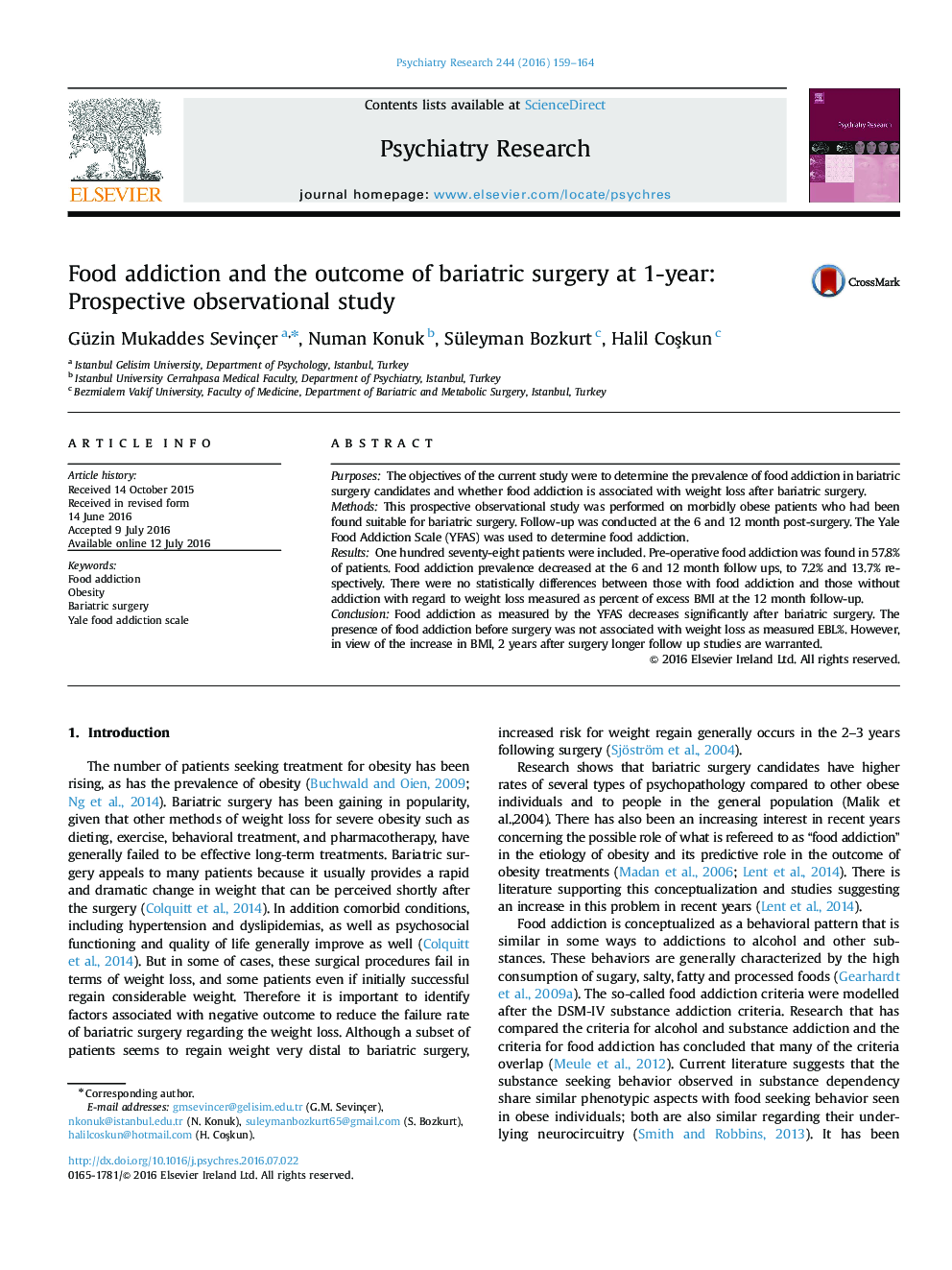| Article ID | Journal | Published Year | Pages | File Type |
|---|---|---|---|---|
| 333008 | Psychiatry Research | 2016 | 6 Pages |
•Pre-operative food addiction prevalance was found very high (57.8% of the patients) among bariatric surgery candidates.•Food addiction prevalence decreased at the 6 and 12 month follow ups, to 7.2% and 13.7% respectively.•Presence of food addiction does not affect weight loss measured as percent of excess BMI at the 12 month follow-up.
PurposesThe objectives of the current study were to determine the prevalence of food addiction in bariatric surgery candidates and whether food addiction is associated with weight loss after bariatric surgery.MethodsThis prospective observational study was performed on morbidly obese patients who had been found suitable for bariatric surgery. Follow-up was conducted at the 6 and 12 month post-surgery. The Yale Food Addiction Scale (YFAS) was used to determine food addiction.ResultsOne hundred seventy-eight patients were included. Pre-operative food addiction was found in 57.8% of patients. Food addiction prevalence decreased at the 6 and 12 month follow ups, to 7.2% and 13.7% respectively. There were no statistically differences between those with food addiction and those without addiction with regard to weight loss measured as percent of excess BMI at the 12 month follow-up.ConclusionFood addiction as measured by the YFAS decreases significantly after bariatric surgery. The presence of food addiction before surgery was not associated with weight loss as measured EBL%. However, in view of the increase in BMI, 2 years after surgery longer follow up studies are warranted.
